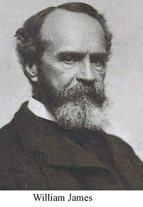The Personalist Forum Archives
The following statement, articulated by Professor Erazim Kohak of Boston University, outlines the principles on which The Personalist Forum was founded
[Although the following statement was made regarding The Personalist Forum, which is no longer an active journal, the driving force behind this statement still continues in an expanded format: The Pluralist.]
The Personalist Forum is offered as an act of faith by those who believe that people matter. We have no strict dogma to propagate, but we do share a common conviction: philosophy should take personal categories seriously, speak to issues that confront persons, and do so in a language that persons, not only philosophical technicians, can understand.
We are quite aware that these convictions go squarely against the trend of contemporary philosophy. In a technological age, philosophy inevitably faces a constant temptation to become a techne . Much of contemporary philosophical writing is based on the unspoken assumption that ultimate reality is impersonal, either infrapersonal matter in motion, drives, and gratification, or suprapersonal, whether "History" or "system." The problems that occupy many contemporary philosophers are again not the problems of persons, but problems of textual scholarship or of conceptual systems, and the language in which much philosophical writing is done is not the language of persons but the private language of philosophical technicians.
We have no wish to deny the validity of philosophy so conceived. We appreciate the crucial need for rigorous scholarship without which philosophy quickly degenerates into platitudinous pontification. Nor do we deny the need for precision and the special terminology that it at times demands.
However, we do deny the adequacy of philosophic techne Something more is needed: philosophy done as if people mattered.
That we believe to be the
broadest sense of the time honored term "personalism." Personalism is a
philosophy predicated upon the irreducibility and primacy of personal
categories, that is, the kind of categories that govern the meaningful
interaction among personal beings--categories of meaning rather than cause, of
respect rather than force, of moral value rather than efficacy, of understanding
rather than explanation. While we recognize the legitimacy of materialistic
categories derived from the metaphor of matter in motion and of vitalistic
categories derived from the metaphor of need and satisfaction for certain
purposes, we regard them as derivative, special case theories legitimate within
the basic framework of personal categories. It is moral categories that we
consider epistemologically and ontologically fundamental, not merely a
peculiarity of human subjects but most approximating the ultimate structure of
reality. In a time honored metaphor, though reality can at times be treated as a
system of matter in motion, ultimately it is a society of persons , and
is so to be understood.
upon the irreducibility and primacy of personal
categories, that is, the kind of categories that govern the meaningful
interaction among personal beings--categories of meaning rather than cause, of
respect rather than force, of moral value rather than efficacy, of understanding
rather than explanation. While we recognize the legitimacy of materialistic
categories derived from the metaphor of matter in motion and of vitalistic
categories derived from the metaphor of need and satisfaction for certain
purposes, we regard them as derivative, special case theories legitimate within
the basic framework of personal categories. It is moral categories that we
consider epistemologically and ontologically fundamental, not merely a
peculiarity of human subjects but most approximating the ultimate structure of
reality. In a time honored metaphor, though reality can at times be treated as a
system of matter in motion, ultimately it is a society of persons , and
is so to be understood.
For that reason we regard personal (or "moral" in an eighteenth-century sense of the word) problems as the proper focus of philosophical thought. Textual scholarship of the highest order is, of course, essential, though as a philosopher's homework rather than his work. A philosopher must do his homework to do his work properly, but ultimately his work is to confront the problems that confront persons, the problems of making sense and responding adequately to the challenge of being a moral subject in the cosmos. While other problems, too, are legitimately philosophical, we think the most pressing philosophical problems to be--in the words of Socrates--those of not only living but living rightly. Thus we consider the moral issues of dealing with, say, our environment prior to issues of utility, the moral issues of the relations of persons and society prior to issues of systems and structures. Philosophy must do a great deal more as well, but it must first speak clearly to persons amid the bewildering task of living rightly in a deeply disturbed world.
That, too, leads us to the conviction that philosophy must strive earnestly for maximal comprehensibility. The technical language of philosophic techne , inner code of philosophic systems, need not be always illegitimate, but its use must be justified by clear and present need. Wherever possible, philosophy must speak the language understood by persons, the language of ordinary experience. It must, to be sure, speak it better, more precisely, more sensitively, but its goal must be to evoke understanding, not to impress with obscurity.
The Personalist Forum is a
journal committed to the irreducibility of personal or "moral" categories.
Though we are quite prepared to print contributions questioning that assumption,
our first common commitment is to take it seriously, whether to derive its
consequences or to criticize it, but to take it seriously. The second is the
commitment to address issues that confront persons. Again we are prepared to
print contributions devoted to problems of pure textual scholarship, when
relevant to our shared concerns. We welcome, for instance, articles on the
meaning of the category 'person', seeking less a consensus than a clarification
of alternatives among us. However, our primary purpose is to publish papers that
address issues of being human in this world. Finally, the third is our
commitment to write in language that can be understood by intelligent readers,
strenuously avoiding jargon whenever possible. We expect our contributors, if at
all possible without loss of clarity, to write of, say, "hearing a person
speaking" rather than "locutionary behavior manifested by the subject was
observed by the researcher."
categories.
Though we are quite prepared to print contributions questioning that assumption,
our first common commitment is to take it seriously, whether to derive its
consequences or to criticize it, but to take it seriously. The second is the
commitment to address issues that confront persons. Again we are prepared to
print contributions devoted to problems of pure textual scholarship, when
relevant to our shared concerns. We welcome, for instance, articles on the
meaning of the category 'person', seeking less a consensus than a clarification
of alternatives among us. However, our primary purpose is to publish papers that
address issues of being human in this world. Finally, the third is our
commitment to write in language that can be understood by intelligent readers,
strenuously avoiding jargon whenever possible. We expect our contributors, if at
all possible without loss of clarity, to write of, say, "hearing a person
speaking" rather than "locutionary behavior manifested by the subject was
observed by the researcher."
In publishing our journal, we are clearly building upon a tradition. Even the title, The Personalist Forum is made up of the titles of two formerly personalist journals, one now defunct, The Personalist and The Philosophical Forum . However, our aim is not simply to perpetuate the tradition of Boston Personalism. We plan to draw on personalism in other traditions, East and West, including Max Scheler and Thomas Masaryk, Emmanuel Mounier and Karol Wojtyla, Nakamura Hajime and Watsuji Tetsuro. Our purpose is to present, in an age of increasing depersonalization of our world and our thought, a philosophical option committed to the irreducibility of personal being and categories, the reality of problems facing persons, and the intelligibility of the language of persons.
This is our aim and hope, and we cordially invite the cooperation of all who believe, as we do, that persons and the cosmos as personal must not become obsolete even in an age of impersonal ideology and technology.
Return to The Personalist Forum Home Page